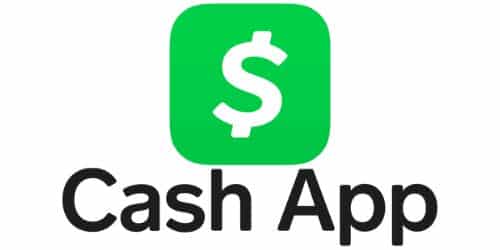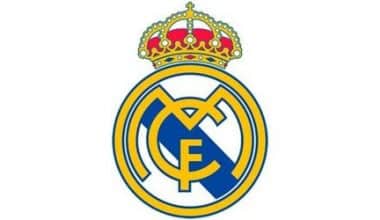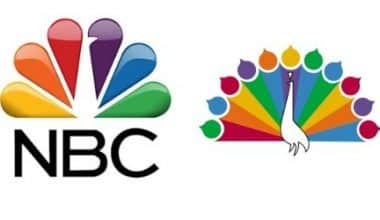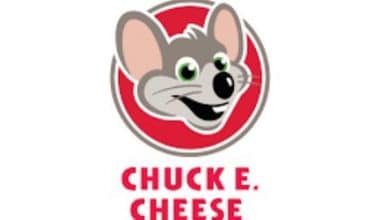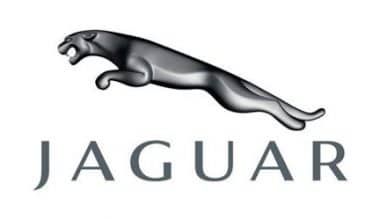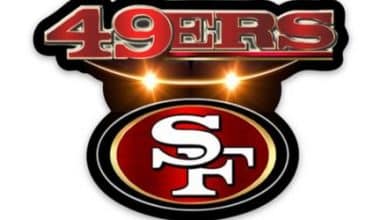Cash Software is a smartphone app that enables users to send money transfers to other users and manage their finances. The software was subsequently launched by Square in 2013, and as of now, it is known to have millions of users worldwide and to be among the most well-liked applications in this market, being compatible with both Android and iOS operating systems. In this article, we will be talking more about the history of the Cash app, which includes the logo font, and the symbol.
Describe Cash App
Square Inc. created the Cash App to offer peer-to-peer money transfer services so users could send and receive money. Users of the Cash App can use their cash account’s debit card, known as a cash card, to make purchases just like they would with a bank account. Users of the app may also buy, sell, and invest in cryptocurrencies.
History of the Company
Cash App is a straightforward mobile payment service that Square created that enables customers to send and receive money through a mobile app. When it was first released in October 2013, the application was known as Square Cash. In March 2015, the Square corporation made Square Cash available for businesses, enabling proprietors, organizations, and people to send and receive money using a special username known as a $cashtag. Users can also be located on the app using their phone numbers or email addresses.
Cash App began facilitating Bitcoin trading in January 2018, and two years later, the platform completed a $4.57 billion bitcoin transaction. Cash App’s revenue increased by 353 percent year over year to $5.9 billion in 2020 because of Bitcoin trading. According to David Curry of the Business of Apps, Twitter CEO Jack Dorsey and his pal Jack McKelvey are the owners of Square, America’s financial services company. The company was founded by Jack and his friend Jim McKelvey when Jim was unable to finish a $2000 deal because he could not accept credit cards. The entrepreneur claimed that Square almost went by the name “Squirrel” before being changed during a lunch meeting with Apple.
How Does the Cash App Work?
Using a debit card connected to an active account, you can contribute money to your Cash App account. Transferring money from your Cash App to your bank account is also possible, but it will take two or three days. The fact that the program gives a free Visa-certified debit card called a cash card that users can request sets it apart from its rivals. The debit card can be used to withdraw money from ATMs as well.
GQ claims that the Cash App is more than simply a practical tool for money transfers. Rappers in particular are particularly prominent in this culture among the black community. It is uncommon to hear a lyric about sending money using Cash App in rap songs, demonstrating the app’s widespread use in hip-hop music.
Rappers can also give money to their followers using the Cash App by just sending their Cash App login, which is incredibly practical. Therefore, Square made the decision to prioritize collaborations with rappers because that is where the main market resides. Rappers like Cardi B, Travis Scott, and Megan Thee Stallion are just a few examples.
Undoubtedly, Jack Dorsey had no idea how closely the two extraordinary businesses he started would be related. It is absurd that Cash App is on Twitter when individuals frequently conduct giveaways on Twitter, particularly Black Twitter.
After the pandemic began, most people began to become more Only Fans, which is a practice where people create explicit content of themselves and charge viewers or subscribers for access to it. And it goes without saying that Cash App is the most widely used and user-friendly method of money transfer.
The firms are not doing anything about it since it is cool and sells, but GQ continues to point out that some aspects of the culture associated with the companies may exploit their image. If cool increases its sales, that’s great; otherwise, it will switch to whatever new trend is popular, regardless of genre or cultural impact.
The Cash App’s History
When it first launched in 2013, Cash App was known as Square Cash. It was called after the parent business Square Inc. and co-founded by Twitter legend Jack Dorsey. The primary idea was to use peer-to-peer payment platforms and be able to pay individuals directly via email.
Customers can use the Cash app on their cell phones to pay for products and services. At first, the unique app could be downloaded for free on both Android and iOS. One year later, Cash App expanded its service by including mobile phone number capabilities.
American Launch
In 2015, Cash App was made accessible to companies in the US. Businesses initially paid a 1.5% transaction fee for each transaction. Sending money to family and friends, however, was totally free for users.
Exchange of Bitcoin
There was no charge when Cash App started allowing users to buy and sell Bitcoin from their balance in 2017. By the end of 2019, the fee for using this service had increased to 1.76%, so this had changed. One of the most lucrative Cash App Services is still this one.
The difference between the Bitcoin charge and individual prices is normally between 1% and 4% in addition to the service fee. Due to the disparity in fees, Cash App is able to charge more for each transaction.
Cash Boost from Cash App
Cash App unveiled this unique function in 2018. It offers chain restaurants and coffee shops like Subway a variety of exclusive deals for Cash App customers.
People receive reward offers when they use their Cash App Cash Card, which encourages utilization. Cash App’s social media channels are updated when new improvements are made to the deals.
British Launch
In April 2018, Cash App made its debut in the UK. It should be noted, though, that UK users are not given access to a Cash App Cash Card. Users of the Cash App cannot send or receive money from the UK or the USA.
Financial Services Square
On March 18, 2020, Square was granted permission by the Federal Deposit Insurance Corporation to launch a bank. The bank, Square Financial Services, provides financial products and small business loans. The bank’s main office is in Salt Lake City, Utah.
The Cash App of the Future
Applications for payment-to-payment and digital wallets are growing in popularity. The drawback is that as more options become accessible, the level of competition rises sharply. The Cash App team is developing a number of intriguing new features in order to stay current and draw in new users.
The Business Model for Cash App
The main features of the Cash App are all free to use, in addition to being free to download. Peer-to-peer payments and transferring money to a bank account are examples of this. To access additional services, keep in mind, however, that there is a fee.
Fees for Businesses
Businesses must pay for the use of Cash App in order for it to be profitable. Businesses that accept Cash App payments currently pay a transaction fee of 2.75%. There are two different methods for making these payments.
Every time a user sends a business an in-application peer-to-peer payment, the business is charged a percentage. When customers pay for goods or services with a Cash Card, the percentage is also deducted from their account.
Expedited Transfers and Credit Card Payments
For a 1.5% fee, users can expedite transfers from their Cash App account to their bank account. Users no longer have to wait two to three days for money to be deposited into their bank accounts as a result of this. Additionally, there is a 3% transaction fee for using Cash App to make a personal credit card payment.
How Do I Register?
A Cash App account may be created quickly and easily. To get started, all new users need to do is download the app and enter their name, phone number or email address, and ZIP code. Users must additionally link their bank account in order to enjoy the majority of Cash App features.
It is necessary to create a personal $Cashtag, which serves as the distinctive personal username, after successfully opening an account. To locate accounts inside the app, use this $Cashtag. Users can use a variety of other services and send and receive payments through it.
Debit Card with a Free Cash App
Additionally, users in the USA can request a complimentary Cash App debit card that is linked to their account balance. It should be noted that using the Cash App debit card at an ATM carries a $2 fee. Users who get a direct deposit of $300 or more from their paychecks each month will be compensated for this cost.
How may Money be Sent and Received?
To make sending and receiving money as simple as possible, a user-friendly interface was created. Use the recipient’s name, $Cashtag, or phone number to give them money. A text message or email with confirmation will be sent to the recipient after you donate the money. After that, they can decide how quickly they want to finish the transfer.
Any Cash App user can get a payment request by using their $Cashtag, name, or email address. Then anticipate receiving a message as soon as the payment is completed. The next step is to decide how you want to finish the transaction.
The money you receive can be deposited for free and usually takes three days into your bank account. You can also choose to have the money transferred to your debit card. You will have to pay 1.5% of the entire amount if you want the money right away.
Cash Caps
Up to $250 can be sent and received each week, for a total of $1,000 per month. The standard limits can be raised, though, if you fully verify your Cash App account. Your date of birth, full name, and the last four digits of your social security number are required in order to complete this.
Cash app accounts can be created with no minimum balance. One dollar is the least amount that can be given or received. There are no monthly fees or service charges for users of the Cash App.
Fraud Defense
The majority of payments are made instantly, while all Cash App payments are encrypted. It should be noted that once a payment has been sent, it cannot usually be canceled. Unfortunately, this gives some possibility for fraud to some extent.
Users of the Cash App must take all necessary precautions to safeguard their accounts. Avoiding screen sharing with anyone else is part of this. Cash App, however, is just as safe as rival services like Venmo and PayPal.
History of Cash App Logo
The currency app has always had a highly vibrant visual design. The application’s goal and essence are represented by its laconic symbol, which is encased in a square frame with rounded corners. The application’s vibrant color scheme makes it stand out and be striking.
Since the app came out in 2013, the logo we all know hasn’t changed. The online service’s visual identity was made up of a bright icon and simple, understated text. The text was rarely used and was usually placed to the right of or below the graphic mark.
Evolution of the Logo
The Cash App branding makes it clear that we are discussing the financial system right away. The logo lets people know that the service can handle transactions and make more cash available. For the client, operations are simple, quick, and secure.
The Square Cash mobile application was released in March 2015 but was renamed later. Users could see right away that the focus was on the dollar sign and that the design was simple but beautiful. It is also no coincidence because this symbol is crucial to the Cash App idea.
2013 – 2017
The money-management app was originally known as Square Cash instead of Cash App. As a result, the logo included a similar black text with thin, sans-serif capital letters. The font was similar to Neology Regular by Shinntype or Alte Haas Grotesk Regular by Yann le Coroller. An icon in the shape of a green square with rounded corners was to the left of the phrase. A normal dollar sign in the shape of the letter “S” was contained within the geometric shape, with the middle portion being crossed out by a vertical stripe. This symbol’s color was white.
2017 – today
When Square Cash became Cash App, the writing on the emblem changed. The designers chose a bold typeface because there is more space now that there are fewer letters. All other glyphs are lowercase except for the initials “C” and “A.” The font’s corners are slightly rounded and devoid of serifs. The square to the left turned a pale green color. The dollar sign has also undergone some changes. It is now angled slightly forward and has two short dashes instead of one long one, one at each end.
Icon
The Cash App icon is a vivid, acid-green square with rounded corners that displays a large, white dollar sign in the center. The drawing of the emblem is slightly stylized, and it leans slightly to the right. The lines’ thickness gives it a steady, assured appearance that conveys strength, professionalism, and forward motion.
Color and font
The Cash App logotype is made with a bold and clear sans-serif typeface. The letters are full and fluid, and the rounded curves of the letters are perfectly balanced in terms of widths and spacing. The name of the software is written in title case using a typeface that is extremely similar to the Basic Commercial family of typefaces and shares many characteristics with FF Teal Head Medium. The simplicity and minimalism of the text design made the logo look better as a whole, giving it an “expensive” look.
Bright green and white are the foundation of the Cash App visual identity’s color scheme, which is occasionally accented with black in the writing. The combination of cheery and light hues conveys a sense of joy and freedom, showcasing the business as one that is successful and forward-thinking and reflecting its vigor and upbeat attitude.
Is Cash App a real bank account?
Cash App is not a bank; it is a financial platform. Debit cards are issued through Cash App’s bank partner, who also offers banking services (s).
What is the Cash App fee for $100?
With a few exceptions, Cash App doesn’t normally charge a fee for sending or receiving $100. The price for sending money using Cash App with a credit card is 3%, or $3 for a $100 transaction.
What is the Cash App fee for $500?
A conventional transfer costs nothing, but an instant transfer could cost anything from $0.50 to $1.70. A $500 immediate transfer would cost between $2.50 and $8.75 as well.
Can I buy Bitcoin on Cash App?
Users can purchase Bitcoin via Cash Tool, a peer-to-peer money transfer app similar to Venmo or PayPal.
How much can I withdraw from Cash App?
There is a $1,000.00 transaction limit, $1,000.00 daily withdrawal limit, and $1,000.00 weekly withdrawal limit.
How much will Cash App charge me to send $1000?
Sending money from your Cash App balance, a linked bank account, or a debit card is free of charge. Paying using a connected credit card incurs a transaction fee of 3%. Most of the time, Cash App payments happen instantly.
What bank does Cash App use?
In general, Sutton Bank is the Cash App Cash Card’s issuer, and Lincoln Savings Bank oversees customer direct deposits.
Conclusion
The peer-to-peer payment service Cash App logo is run by Square Inc. The app has rapidly risen to prominence as one of the most popular payment platforms worldwide in less than a decade. The incorporation of numerous cutting-edge services and features is one of the factors contributing to the Cash App’s success.
The Cash App logo currently has a market value of more than $19 billion. It has survived despite facing fierce competition from businesses like Venmo and PayPal. Approximately 24 million people use Cash App right now, and that number is growing by 60% annually.
